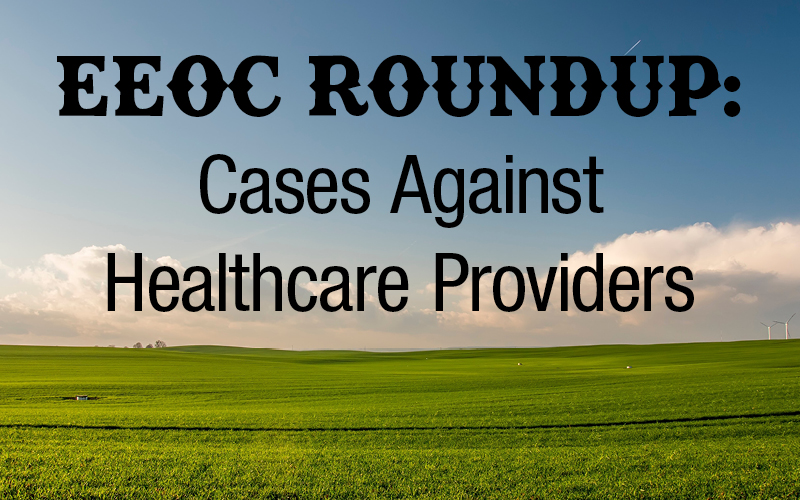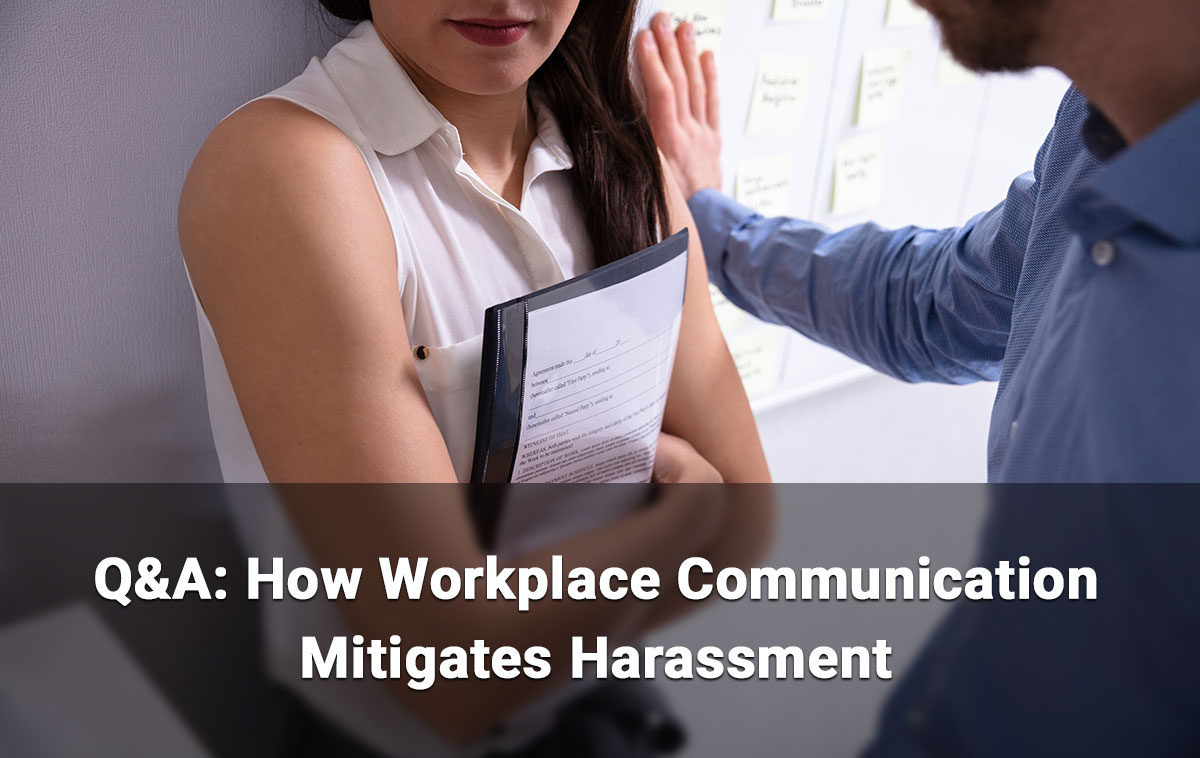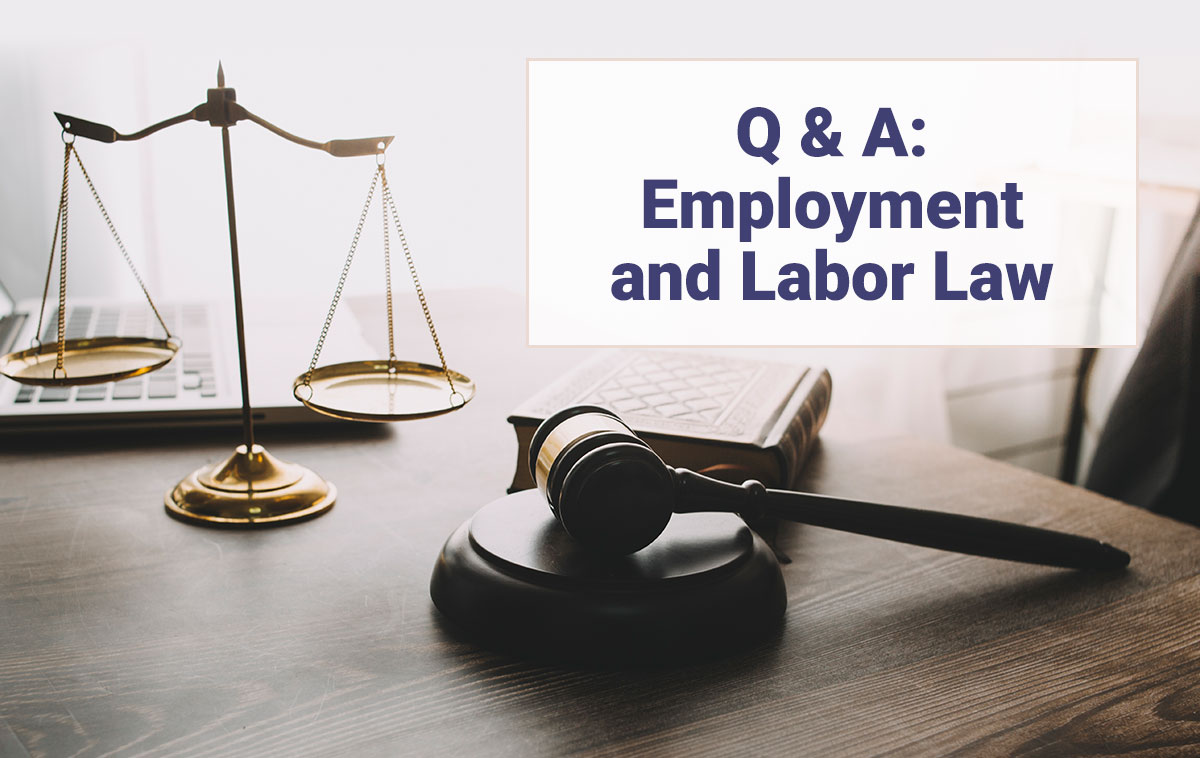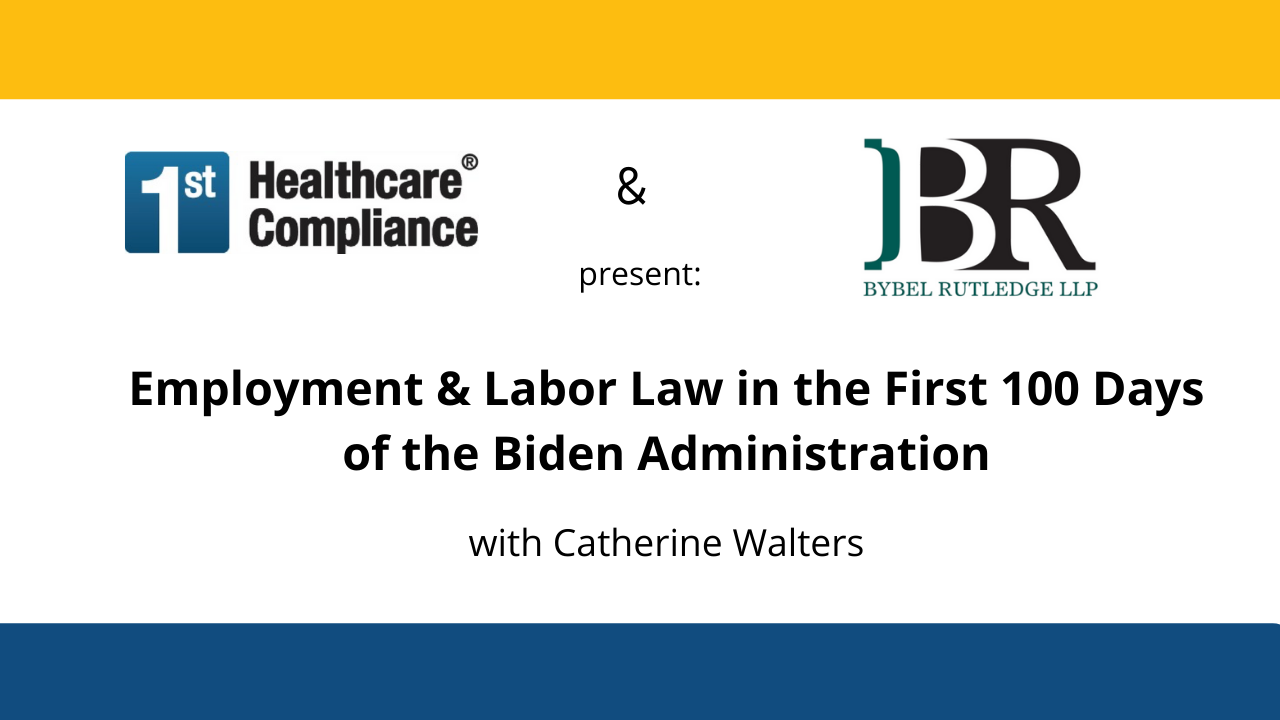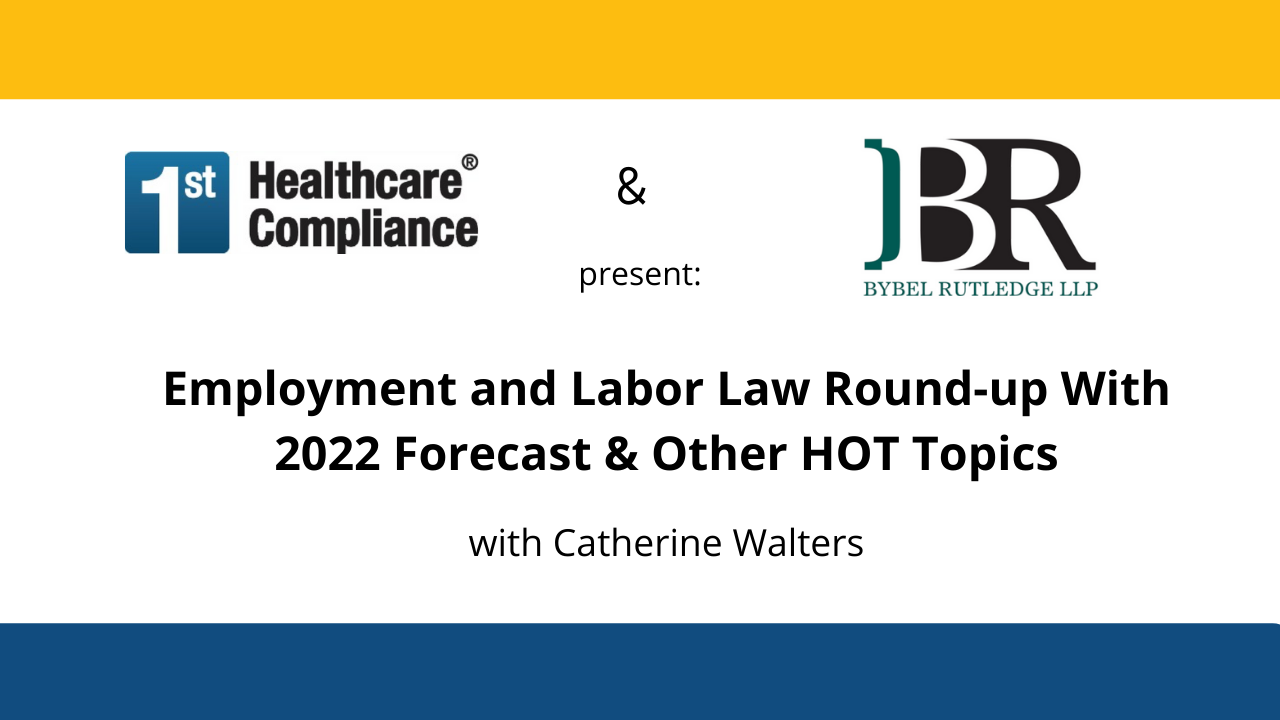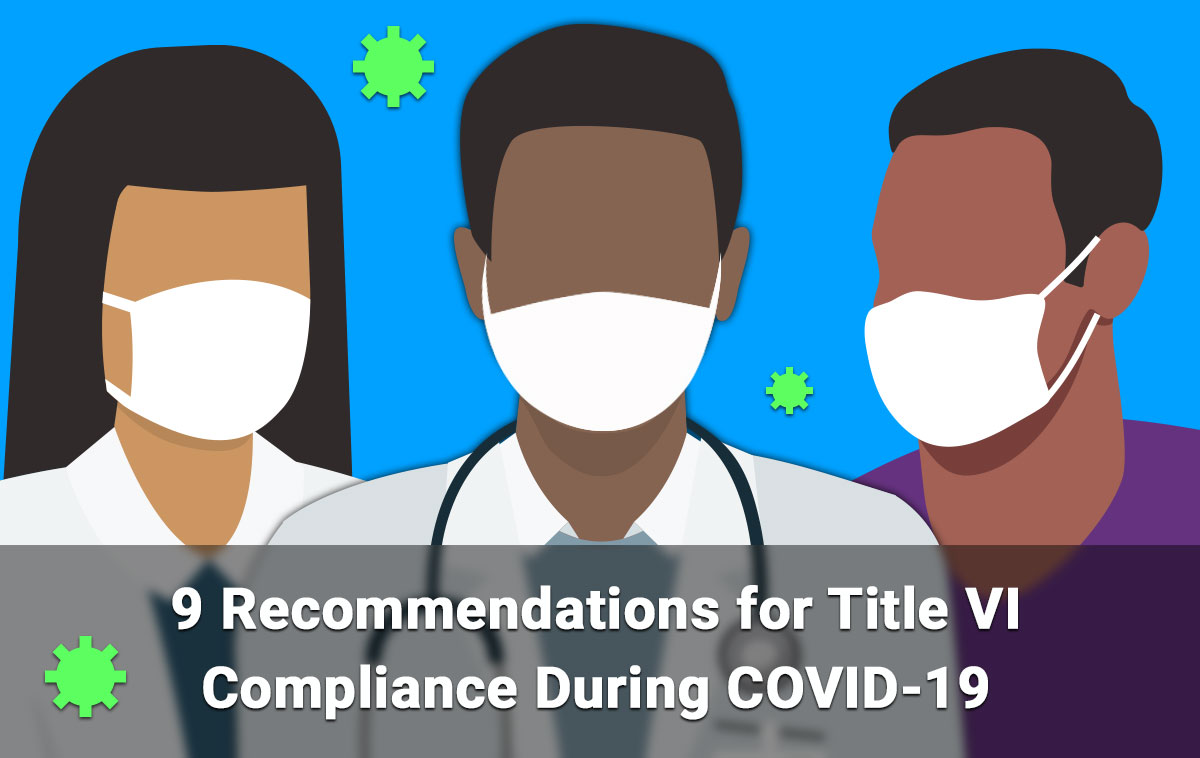EEOC Roundup: Cases Against Healthcare Providers
The Equal Employment Opportunity Commission (EEOC) has been scrutinizing the policies of healthcare providers recently. As the federal agency responsible for enforcing federal employment discrimination laws, healthcare providers with outdated policies and/or practices may find themselves in hot water. Here are the some of the most recent cases the EEOC has initiated:
EEOC v. Montrose Memorial Hospital, Inc.
EEOC sued Montrose Memorial Hospital for age discrimination because 29 employees over the age of 40 were terminated for supposed performance deficiencies while younger employees were treated more leniently. The EEOC alleged that hospital management made ageist comments, including that younger nurses could “dance around the older nurses” and that they preferred younger and “fresher” nurses.
Under the Age Discrimination in Employment Act (ADEA) it is unlawful to discriminate against an employee or applicant because of his/her age with respect to any term or of employment.
Montrose agreed to settle the suit for $400,000 and also agreed to take the following actions:
- Conduct annual anti-discrimination training for its employees, managers, supervisors and human resources employees;
- Revise and distribute its anti-discrimination policy; and
- Report complaints of age discrimination to the EEOC.
EEOC v. Memorial Healthcare
 The EEOC filed suit against Memorial Healthcare for religious discrimination because it withdrew a job offer as a medical transcriptionist due to Plaintiff’s religious objection to receiving an influenza vaccination. While Memorial has a policy requiring all new employees to obtain an influenza vaccination, it also has a policy that allows the use of masks for those who do not get vaccinated. The EEOC noted that Plaintiff would eventually work from home and offered to wear a mask.
The EEOC filed suit against Memorial Healthcare for religious discrimination because it withdrew a job offer as a medical transcriptionist due to Plaintiff’s religious objection to receiving an influenza vaccination. While Memorial has a policy requiring all new employees to obtain an influenza vaccination, it also has a policy that allows the use of masks for those who do not get vaccinated. The EEOC noted that Plaintiff would eventually work from home and offered to wear a mask.
The EEOC claimed that Memorial’s adverse action violated Title VII of the Civil Rights Act (Title VII) which protects employees against discrimination based on religion and requires employers to provide employees with reasonable accommodations to allow them to practice their sincerely held religious beliefs. The suit is currently being litigated in the U.S. District Court for the Eastern District of Michigan.
EEOC v. Mission Hospital, Inc.
In another lawsuit regarding influenza policies, the EEOC filed suit against Mission Hospital for religious discrimination. EEOC stated that Mission requires all employees to receive an annual influenza vaccination. Mission allows exemptions based on religious beliefs but requires that requests be made by a specific date- Sept. 1. The EEOC alleged that three employees requested religious exemptions to the vaccination requirement and were denied because it was after the Sept. 1 deadline. As a Result, Mission terminated all three employees.
Mission Health System agreed to settle the case in the amount of $89,000, in addition to the following:
- Revise its immunization policy to allow employees to request an exemption during the same period in which flu vaccines are to be received;
- Provide annual training for management on Title VII, including the topic of religious accommodations and employer obligations;
- Post a notice about the lawsuit to all employees; and
- Provide the EEOC with periodic reports on requests for religious exemption from the flu vaccination.
EEOC v. Trinity Hospital
 The EEOC sued Trinity Hospital for violating Title VII and the Americans with Disabilities Act (ADA) because it failed to accommodate a nurse with a pregnancy-related health condition by refusing to provide her with a light-duty work assignment. The EEOC alleged that Trinity provided light-duty assignments exclusively to employees that suffered workplace injuries.
The EEOC sued Trinity Hospital for violating Title VII and the Americans with Disabilities Act (ADA) because it failed to accommodate a nurse with a pregnancy-related health condition by refusing to provide her with a light-duty work assignment. The EEOC alleged that Trinity provided light-duty assignments exclusively to employees that suffered workplace injuries.
The EEOC has taken the position that under the Pregnancy Discrimination Act of Title VII temporary light duty assignments must be offered to pregnant employees if the same accommodation is provided to non-pregnant employees.
Trinity agreed to a $95,000 settlement in addition to the following:
- Revise its policies to assure compliance with Title VII and the ADA in requiring accommodations for pregnancy-related limitations;
- Provide training to its human resources employees and ensure its policies are accessible to its employees; and
- Provide the EEOC with periodic reports.
EEOC v. Pioneer Health Services, Inc.
The EEOC sued Pioneer Health Services for failing to provide a reasonable accommodation under the ADA when it terminated a social worker/therapist for exhausting her leave under the Family and Medical Leave Act (FMLA). Plaintiff was approved for FMLA leave to undergo liver transplant surgery. Plaintiff’s request for an extension of leave for recovery was denied because she had exhausted her 12 weeks of leave. As a result, she was terminated. Pioneer also refused to re-hire Plaintiff for an available social worker/therapist position several months later.
EEOC claimed that Pioneer failed to accommodate Plaintiff’s disability by denying her extension of leave request and also retaliated against her when it refused to rehire her for an open position.
EEOC District director stated that “the intersection of the ADA and Family and Medical Leave Act will continue to be an area of focus for the EEOC,” Courts have ruled that disabled employees that exhaust FMLA may be entitled to additional leave as a reasonable accommodation under the ADA.
Pioneer settled the case for $85,000 and agreed to the following:
- Provide employee training on the ADA;
- Review and update its anti-discrimination policies;
- Assign a senior company official, trained on ADA, with the responsibility of providing written recommendations to Pioneer’s management before terminating any employee based on his or her actual, perceived, or record of a physical or mental impairment, or for exhaustion of medical leave.
Learn from these healthcare employers mistakes to avoid similar outcomes. Make sure your policies and practices are compliant with the law. Find out how our comprehensive cloud based compliance management software solution can help you achieve peace of mind.
Register now for our upcoming Healthcare Compliance Symposium that will cover topics on HR compliance, elements of a compliance program, HIPAA Privacy and Security, and OSHA.

